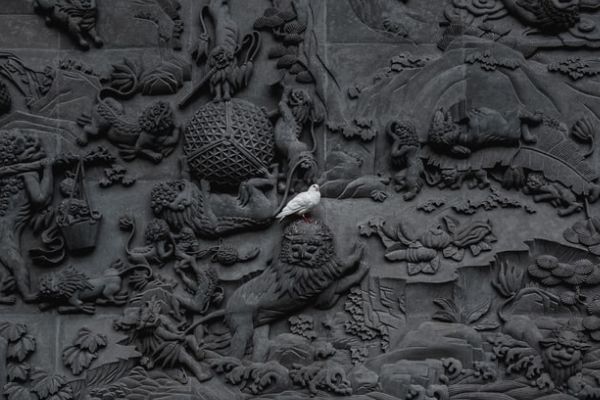
In December 2020, China promulgated the Criminal Law Amendment (XI) (刑法修正案(十一)), three articles of which concern biosecurity as well as the prevention and control of infectious diseases such as COVID-19.
I. China’s legislation on public health and biosecurity in 2020
After the outbreak of COVID-19 in early 2020, China has launched a series of initiatives aiming at improving the laws and regulations concerning public health and biosecurity.
On 30 Jan. 2020, the Supreme People’s Procuratorate (SPP) issued the “Guiding Opinions on Handling Relevant Criminal Cases during the Prevention and Control of COVID-19” (關(guān)于在防控新型冠狀病毒肺炎期間刑事案件辦理有關(guān)問題的指導(dǎo)意見), providing guidance for the procuratorate in handling relevant criminal cases concerning epidemic prevention and control.
On 6 Feb. 2020, the Supreme People’s Court (SPC), the SPP, the Ministry of Public Security, and the Ministry of Justice jointly issued the “Opinions on Punishing the Crimes against the Prevention and Control of COVID-19 in accordance with the Law” (關(guān)于依法懲治妨害新型冠狀病毒感染肺炎疫情防控違法犯罪的意見), providing detailed explanations on dozens of charges related to the prevention and control of infectious diseases against the backdrop of COVID-19.
On 17 Apr. 2020, the Standing Committee of the National People’s Congress (NPC) passed the “Work Plan of the 13th NPC Standing Committee to Strengthen the Law Enactment and Revision in Public Health Protection” (十三屆全國人大常委會強(qiáng)化公共衛(wèi)生法治保障立法修法工作計(jì)劃). The Plan intends to formulate and revise 17 laws in 2021, including the Biosecurity Law (生物安全法), the Animal Epidemic Prevention Law (動物防疫法), and the Infectious Disease Prevention and Control Law (傳染病防治法).
In terms of legislation, the Law on the Prevention and Control of Environmental Pollution Caused by Solid Waste (固體廢物污染環(huán)境防治法) has been revised, and was promulgated on 29 Apr. 2020. The newly enacted Biosecurity Law was promulgated on 17 Oct. 2020.
On 26 Dec. 2020, the Criminal Law Amendment (XI) was promulgated. The Amendment has 47 revisions, and the main purpose of those that concern punishing crimes against public health and biosecurity is to prevent the spread of epidemic. Among these articles, there are three charges deserving our attention.
II. Crime of obstructing the prevention and control of infectious diseases
The outbreak of COVID-19 has brought the crime of obstructing the prevention and control of infectious diseases into China’s public concern. The legislature and the judiciary also intend to give play to the role of the said crime in public health protection in the COVID-19 era.
Article 330 of the Criminal Law has already stipulated this crime, that is, he who does a specific act that causes the spread of Class A infectious diseases or has a major risk of spread may be convicted of this crime.
This revision has two major purposes:
1. The scope of infectious diseases in this crime is expanded with one more disease, that is, “determine the infectious disease that is determined, in accordance with law, to be subject to prevention and control measures for Class A infectious diseases”. The COVID-19 falls under the expanded scope under China’s legislation context. Before that, the previous “crime of obstructing the prevention and control of infectious diseases” could not cover COVID-19.
2. The scope of acts in this crime is expanded with one more act, that is, “to sell and transport articles contaminated or likely to be infected by infectious disease pathogens in the epidemic area without disinfection”. Therefore, the crime can be applied to the spread of infectious diseases caused by improper management of articles.
III. Crime of illegally hunting, purchasing, transporting and selling terrestrial wildlife
China’s Wildlife Protection Law provides classified protection for wild animals, but does not prohibit the consumption of general wild animals. In the traditional Chinese culture, some people believe that wild animals are nutritious and have medicinal value, resulting in a prosperous wildlife trading market, which, at the same time, increases the risk of transmission of infectious diseases from wild animals to human beings.
At the beginning of this epidemic outbreak, the NPC Standing Committee urgently passed the “Decision on Comprehensively Banning Illegal Wildlife Trade, Eliminating the Indiscriminate Consumption of Wild Animals, and Effectively Protecting the People’s Health” (關(guān)于全面禁止非法野生動物交易、革除濫食野生動物陋習(xí)、切實(shí)保障人民群眾生命健康安全的決定) on 24 Feb. 2020, prohibiting the consumption of general terrestrial wild animals as well.
To make the foregoing Decision more enforceable, this Amendment adds a new paragraph to Article 341 of the Criminal Law, i.e., punishing the illegal hunting, purchasing, transporting and selling terrestrial wild animals that grow and breed naturally in the wild for the purpose of consumption. Before that, this crime only provided protection for “rare/endangered wildlife under national special protection”. After this Amendment, all terrestrial wildlife will be protected.
IV. Crime of illegally introducing, releasing or discarding alien invasive species
By 2019, more than 660 alien invasive species had been found in China. Among them, 71 species have caused or may cause threats to the ecosystem.
Biological invasions will not only destroy the animal and plant resources, cause the disappearance and extinction of species, but will also lead to the spread of viruses and bacteria, thus threatening human life and health.
In order to control the spread of the virus from the source, this Amendment adds a new paragraph to Article 344 of the Criminal Law, i.e., punishing the crime of illegally introducing, releasing or discarding alien invasive species.
Photo by Kin Li on Unsplash
Contributors: Guodong Du 杜國棟









